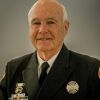If you, like me, are glad to see the sun set on 2020, and are looking forward to the sun rise on 2021, then you may be thinking about to the “reset” button.
I am hopeful that with the newly approved vaccines that will soon be available, not only to our firefighter/paramedics but also to the public in general, we will finally be able to turn the page on COVID-19.
But before we do, perhaps we need to take some time to contemplate the changes that have occurred over the past year, particularly those changes that could impact your department and your personnel.
Community changes
It may take the sociologists several years to figure out the reach, but almost every community has changed to some degree. This may be an increase or decrease in population or a change in identity related to time-honored features that made your community unique. For example, perhaps a major business that had been located in your community for decades has closed, impacting other suppliers in your area, and resulting over time in a change to your tax base.
Let’s consider some of these possible factors.
Population: Low interest rates drove a flurry of first-time home-buying, especially in the suburbs and rural areas, in 2020. The movement away from the downtown areas of large cities may continue for several reasons:
- Work from home: In addition to the lower mortgage rate opportunities, some people are leaving metropolitan areas amid the realization that the work-from-home model will likely continue, allowing employees in some businesses to eliminate their commute, or at least the frequency of traveling to a central office. There have also been reports of people leaving areas due to the uptick in civil unrest during 2020. Regardless of the reason, populations appear to be changing away from larger cities and shifting to many smaller communities – as long they have high-speed internet.
- Identity: Every community has an identity. Whether they like what it is or not, there are perceptions by others that can be good or bad about an area in which we live. This can be based on income, schools, recreation, or essential services, including fire, EMS and police.
When my wife and I first moved into our home several decades ago, the fire and BLS service was provided by very community-based volunteer fire departments. Families that had grown up in these neighborhoods knew the service was provided by volunteers, and that tradition was carried on from one generation to another.
Over time, our community grew from mostly rural to suburban, and then with a mix of businesses, shopping malls and light industry, into a mostly urban community with a central business district. With the increase in call volume, the fire and EMS department evolved as well, from several volunteer departments to a single combination department and from combination to career. We now cover over 45 square miles, but our community has a single identity that is the same as the name of its fire and EMS department covering over 60,000 residents.
Tax base
The effects of COVID-19 may take a toll on the tax base you use for your department’s revenue stream. Whether you rely on an income tax, a property tax or a combination of both, what will either the influx or outflow of your population mean to your department’s anticipated revenue? Will an increase in residential property values offset the cost of the increase demand for services, including new station locations and the corresponding equipment and personnel needed to adequately respond to their needs?
What will be the effect if your shopping mall or business district loses a major anchor store to online shopping or if the mall itself just folds? Is there a community re-development as well as a community development plan in your community and is your department represented on either or both?
Get ahead of the issues
Here is where you, the chief, need to get ahead of these potential issues by hitting the reset button – and asking some questions:
- What are the potential issues (i.e., growth and development, or stagnation and reduction)?
- How will the anticipated influx or outflow of the population affect you?
- What effect will the closure of an anchor store, upscale restaurant, business, big box store or major industry have on your community and subsequently on your department?
Asking these “what if” questions aren’t the same as saying the sky is falling, but it is realizing that the pandemic had serious consequences on almost every local economy, and potentially an effect on the capability of your department.
New residents = new opportunities
The pandemic may have a positive effect on some communities. For example, with more work-from-home residents, could it be a modern-day version of a time when volunteers left their businesses to answer a call?
People are social animals, and most of us seek social interaction with friends and coworkers. Workplace socializing may be almost eliminated for some who have begun working from home, and people may seek out new groups with which to interact. If so, the time is now to begin to inform the newcomers to your area of opportunities with your department. Perhaps these newcomers will become an integral part of their new community by becoming a firefighter, medic, EMT or CRR resource in their local department.
So there it is, chief. It’s time to hit the reset button and decide if and how you will be proactive for the future of your department.
Stay safe!













